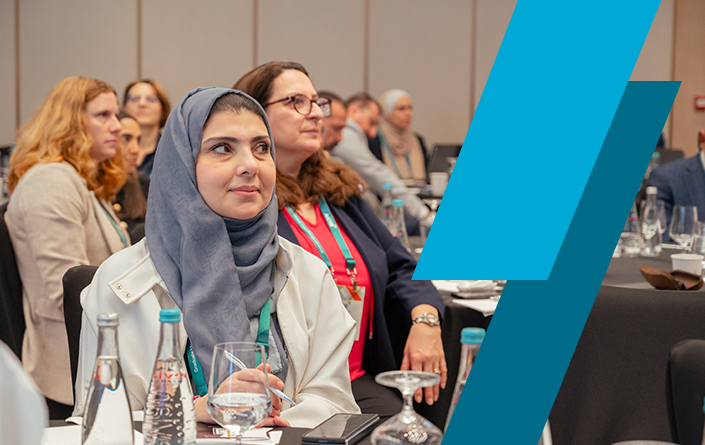Vera Blazevic
Summary
Vera Blazevic is an associate professor of marketing at Radboud University Nijmegen and a visiting professor at RWTH Aachen University’s Institute for Technology and Innovation Management. Blazevic has become known as an expert in managing the impact of digital technologies, such as generative artificial intelligence (GenAI), and their applications in innovation management. In particular, Blazevic has been studying the impact of large language models, like ChatGPT, on creativity and innovation. She seeks to develop knowledge and guidance on how to embrace GenAI responsibly, recognizing its opportunities as well as its risks and challenges.
Description of Research Impact
With Blazevic’s expertise on how to use GenAI to responsibly manage creative business tasks, she guides organizations, educators, and policymakers on the benefits and risks of the technology, thereby fulfilling the Nijmegen School of Management’s (NSM) mission to deliver “responsible governance for sustainable societies.” For example, through publications, media interviews, and individual talks, Blazevic has shown organizations how to use GenAI for innovation management.
The widespread introduction of GenAI has raised scientific debates over how humans can co-produce creative ideas with AI. GenAI quickly and efficiently produces new content from vast amounts of existing data, and large language models like ChatGPT or Google Bard and related image-based models like DALL-E or Midjourney have brought attention to AI’s creative abilities. In Blazevic’s research, she examines the responsible deployment of GenAI in creative tasks to better understand how and under what conditions professionals can constructively co-create with the technology. Her research therefore contributes to the responsible integration of GenAI into work contexts and society at large, again helping Radboud University Nijmegen deliver on its strategic imperative to deliver real impact to society and organizations.
Likewise, Blazevic is a core expert in guiding NSM’s policy on GenAI and education. She brought attention to the importance of AI tools in education early on, in the summer of 2022, to increase awareness and engage in discourse. Blazevic coaches faculty at NSM on the opportunities and challenges of AI and discusses vulnerabilities in their courses related to GenAI.
As Blazevic’s work has been referenced by the media, it has allowed her to inform wider society on the usage implications of GenAI. For example, in an interview for Intermediair, an online work-life platform, Blazevic was able to share how her research offers novel and fundamental insights and guidelines on how and when to responsibly augment human innovation tasks with GenAI. This information is relevant not only for professional workers but also for educational staff and policymakers (e.g., regarding the impact of GenAI on students’ creative work). Such discussion is important in order to prepare professionals for a GenAI-integrated world—one in which AI will not replace humans, but humans working with AI might replace those who are not.
Examples of Research Impact
- Blazevic co-authored a paper titled “Augmenting Human Innovation Teams with Artificial Intelligence: Exploring Transformer-Based Language Models,” one of the first management domain papers addressing the impact of large language models on innovation management. The paper's acceptance around the same time as ChatGPT's release, and its publication just a month later, attests to the novelty and originality of the ideas. The paper also contains a research agenda for analyzing GenAI’s impact on innovation, thereby serving as a guide for other researchers.
The paper has been highly viewed (more than 23,000 full-text views) and cited, registering in the 99th percentile and with an article Field Weighted Citation Impact (FWCI) of 20.51, both from Scopus. Its Altmetrics score is 68, and it was picked up by news outlets and included in 29 tweets from 25 X users, with a reach of over 133,299 followers. The paper’s success led to its featured position on Radboud University website’s page on GenAI.
- Blazevic also contributed to a chapter in a prestigious handbook in the innovation domain, the PDMA Handbook of New Product Development, 4th edition. The text deals with the rapid entrance of AI and machine learning into innovation labs to address challenges in new product development (NPD), including shorter product lifecycles, supply chain disruptions, and sustainability requirements.
The chapter explores how those technologies can enhance the innovation process, introducing the concept of hybrid intelligence to collaborate with human teams and highlighting use cases in different NPD stages while acknowledging associated limitations and organizational challenges. It shows valorization in the business world, as the book is highly valued at the Product Development Management Association (PDMA), an organization with many business members.
- Blazevic co-authored a paper titled “AI-Augmented Creativity: Overcoming the Productivity Loss in Brainstorming Groups,” dealing with AI-augmented brainstorming as a highly scalable means of advancing human creativity and overcoming the productivity loss typically present in interactive brainstorming groups. Based on a one-factorial, between-subjects lab experiment, in which 168 participants brainstormed ideas for a common question, it compares nominal groups (humans brainstorming individually), interactive groups (humans brainstorming together as a team), hybrid groups (a human brainstorming together with an AI), and AI-only control groups. The results indicate that hybrid groups outperform both interactive and nominal groups in terms of brainstorming productivity and creativity. Furthermore, the study suggests AI could replace human ideation altogether and discusses why such an interpretation might be too hasty and shortsighted, considers important implications, and derives avenues for future research.
“AI-Augmented Creativity” received the Best Paper Award at the Innovation and Product Development Management Conference and an award for bold, transdisciplinary, and curiosity-driven research at the Frontiers in Service Conference. It also raised interest from both practitioners and academics through invitations for talks, in the form of several innovation workshops with industrial partners HEC Paris, University of Kiel, INTERACT! Interdisciplinary consortium, and REIFF Science Day. The paper is currently under review with Information Systems Research.
Select Publications
- Sebastian G. Bouschery, Vera Blazevic, and Frank T. Piller, “Augmenting Human Innovation Teams with Artificial Intelligence: Exploring Transformer-Based Language Models,” Journal of Product Innovation Management 40, no. 2 (March 2023): 139–53, https://doi.org/10.1111/jpim.12656.
- Frank T. Piller, Sebastian G. Bouschery, and Vera Blazevic, “Hybrid Intelligence for Innovation: Augmenting NPD Teams with Artificial Intelligence and Machine Learning,” in PDMA Handbook of New Product Development, 4th ed., eds. Ludwig Bstieler and Charles H. Noble (Hoboken, New Jersey: Wiley, 2023).
- Sebastian G. Bouschery, Vera Blazevic, and Frank T. Piller, “AI-Augmented Creativity: Overcoming the Productivity Loss in Brainstorming Groups,” Academy of Management Proceedings, 2023, https://doi.org/10.5465/AMPROC.2023.11938abstract.
Supporting Links
- ChatGPT Is Not Without Risk, But It Can Be Valuable, Intermediair
- “An Innovation Love Story,” Medium
- “Using ChatGPT to Stimulate Innovation Within Organizations,” Tech Explore
- “Innovating Innovation,” Medium






